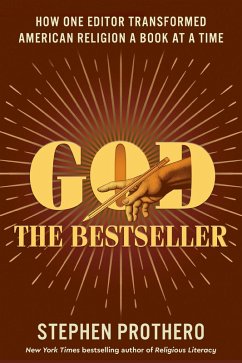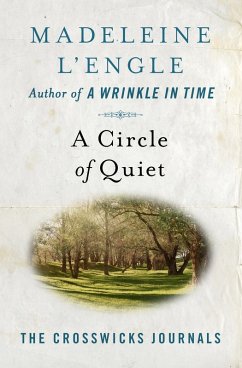
The Conversions of Edward Gibbon (eBook, ePUB)
A Modern Biography
Redaktion: Thurman, Judith
Erscheint vor. 14.07.26
11,95 €
inkl. MwSt.
Unser Service für Vorbesteller - dein Vorteil ohne Risiko:
Sollten wir den Preis dieses Artikels vor dem Erscheinungsdatum senken, werden wir dir den Artikel bei der Auslieferung automatisch zum günstigeren Preis berechnen.
Weitere Ausgaben:

PAYBACK Punkte
6 °P sammeln!
A new feminist biography of the incomparably influential English historian Edward Gibbon, author of The History of the Decline and Fall of the Roman Empire.The Enlightenment-era, six-volume epic The History of the Decline and Fall of the Roman Empire is to history what In Search of Lost Time is to fiction. Edward Gibbon's chronicle of the late Roman period continues to be, nearly 250 years after its original publication, the best-known work of history written in the English language. Gibbon's flights of lyricism, his ironic observations, his unflagging devotion to reason over piety, come to fo...
A new feminist biography of the incomparably influential English historian Edward Gibbon, author of The History of the Decline and Fall of the Roman Empire.
The Enlightenment-era, six-volume epic The History of the Decline and Fall of the Roman Empire is to history what In Search of Lost Time is to fiction. Edward Gibbon's chronicle of the late Roman period continues to be, nearly 250 years after its original publication, the best-known work of history written in the English language. Gibbon's flights of lyricism, his ironic observations, his unflagging devotion to reason over piety, come to form a captivating history of the Imperial Roman world and an epochal model of historiography with which all subsequent historians must contend.
In The Conversions of Edward Gibbon, the last work of the celebrated feminist historian Martha Saxton, we come to know the man and the methods. Saxton's illuminating biography-the first in twenty years-follows Gibbon from his unhappy childhood in Surrey, to his time at Oxford and his flirtation with deism, through his writing life and his physical suffering in later age.
Gibbon is in some respects everything Saxton seeks to turn against in her own work, and while she writes unsparingly of the historian's foibles and cruelties, her interest comes from a place of deep curiosity, to understand why Gibbon, unlike many other Enlightenment thinkers who generally regarded their female contemporaries as potential allies in building the more equitable civil society that they envisaged, remained so personally barbed and cold to the women in his life and work.
What emerges is a portrait of a complex historian and a decaying antique empire, all bathed in the light of the tumultuous eighteenth century.
The Enlightenment-era, six-volume epic The History of the Decline and Fall of the Roman Empire is to history what In Search of Lost Time is to fiction. Edward Gibbon's chronicle of the late Roman period continues to be, nearly 250 years after its original publication, the best-known work of history written in the English language. Gibbon's flights of lyricism, his ironic observations, his unflagging devotion to reason over piety, come to form a captivating history of the Imperial Roman world and an epochal model of historiography with which all subsequent historians must contend.
In The Conversions of Edward Gibbon, the last work of the celebrated feminist historian Martha Saxton, we come to know the man and the methods. Saxton's illuminating biography-the first in twenty years-follows Gibbon from his unhappy childhood in Surrey, to his time at Oxford and his flirtation with deism, through his writing life and his physical suffering in later age.
Gibbon is in some respects everything Saxton seeks to turn against in her own work, and while she writes unsparingly of the historian's foibles and cruelties, her interest comes from a place of deep curiosity, to understand why Gibbon, unlike many other Enlightenment thinkers who generally regarded their female contemporaries as potential allies in building the more equitable civil society that they envisaged, remained so personally barbed and cold to the women in his life and work.
What emerges is a portrait of a complex historian and a decaying antique empire, all bathed in the light of the tumultuous eighteenth century.
Dieser Download kann aus rechtlichen Gründen nur mit Rechnungsadresse in D ausgeliefert werden.












